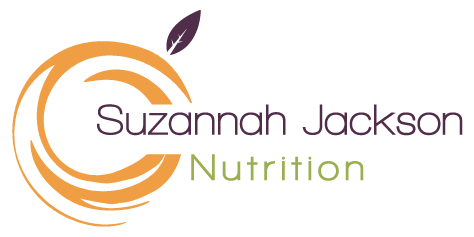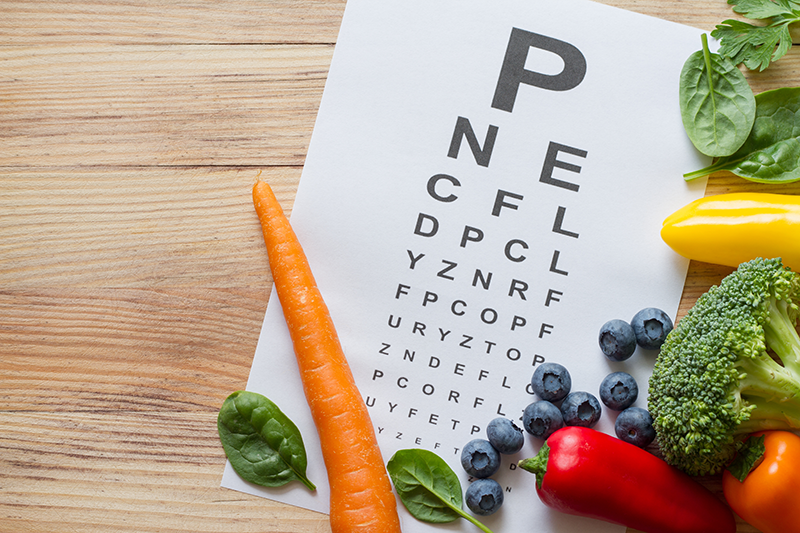Lifestye and dietary stategies for better vision
You probably don’t often think of your eyes much, outside of a regular check that you have the right prescription for your glasses or contacts and even then, you might assume that eye problems are only the domain of opticians. You’d be wrong.
It’s vital that you get your eyes regularly checked, not only so that you don’t struggle more than you need to but so that small changes in your eye health get picked up as soon as possible and can be treated or managed.
Common eye problems
It won’t come as much of a surprise that, as you get older, your risk of eye disease increases. Some of the most common include the following:
Cataracts – your eyes get clouded (you can literally see a bloom on the lens of the eye as the condition advances). Age-related cataracts are a leading cause of vision impairment and blindness, and – aside from ageing – can result from the use of steroids and high blood sugar levels/diabetes.
Diabetic retinopathy – high blood glucose levels can also damage the blood vessels in your retina.
Glaucoma – this term describes a group of chronic, progressive diseases that involve continuing degeneration of the optic nerve, leading to poor vision or blindness. One of the risk factors is eye pressure caused by the build-up of fluid, which damages the nerve. Although your risk goes up with age and family history, some medical conditions like diabetes and migraines can also play a part.
Macular degeneration – this is another condition affecting your retina, in this case the central part of your retina. AMD (age-related macular degeneration) is a key cause of blindness. Risk factors include smoking, having cataract surgery, hypertension, obesity, sedentary lifestyle.
If you have any concerns about your eyes, make an appointment with your optician as a first port of call.
What can you do about eye problems?
Your eyes need more than just regular check-ups to maintain their health. Just as you nourish your body with good food and exercise, your eyes too demand a nutrient-rich diet and a healthy lifestyle. The intricate machinery that constitutes your vision can be optimised and protected through certain food and lifestyle choices.
1.The carotenoid trio: lutein, zeaxanthin, and meso-zeaxanthin
Found in dark leafy greens such as spinach, kale and spring greens (collard greens), these potent antioxidants absorb harmful high-energy blue wavelengths of light, acting like sunglasses for your retina. Not only do they protect, but studies also suggest that they improve contrast and reduce glare.
2. Omega-3 fatty acids
Famously found in fatty fish like salmon, sardines and mackerel as well as chia seeds, flaxseeds and walnuts, omega-3s are crucial for maintaining the cell structure of retinas. They also have anti-inflammatory properties, which can help deter conditions like dry eye syndrome and may be protective against diabetic retinopathy. In fact, the anti-inflammatory benefits extend far beyond your eyes, and omega 3 is a popular dietary addition for inflammatory conditions like arthritis and eczema.
3. Vitamin C
Vitamin C (like vitamin E, below) is an antioxidant important throughout the body for countering environmental damage, among other things. Your eyes need a lot to stay healthy and it can help reduce the risk of cataracts and age-related macular degeneration (AMD). Researchers have observed that people with cataracts seem to have low antioxidant status. Vitamin C, in particular, is needed by the aqueous humour of the eye (the liquid that fills the outermost part of your eye). You’ll find vitamin C in most fruit, including citrus fruit, strawberries and kiwis, plus courgettes, cauliflower, broccoli, red pepper, and spinach.
4. Vitamin E
Vitamin E is a fat-soluble vitamin as well as an antioxidant and it’s important for eye health for a number of reasons, not only as an important source of fatty acids for your retina. You’ll find vitamin E in sunflower and pumpkin seeds, Brazil nuts, pistachios, almonds, salmon, trout, peanuts, hazelnuts, avocado and pine nuts.
5. Zinc
Zinc plays some important roles in the body, from wound healing, stomach acid production and feeding your thyroid to eye health. Your eyes contain a lot of zinc and lack of it has been linked to night blindness.
Present in legumes, lean meats, seafood (oysters famously include it), peanuts and pumpkin seeds, this essential trace mineral plays a vital role in maintaining the health of the retina and may prevent cellular damage in the eyes.
6. Beta-carotene & vitamin A
Vitamin A deficiency is one of the leading causes of blindness. This fat-soluble vitamin is found in animal sources like liver, egg yolks, and dairy products. However, you can also get it to a lesser extent from plant foods. Beta-carotene is found in colourful vegetables such as carrots, sweet potatoes and red peppers, and our body converts beta-carotene into vitamin A. However it’s worth noting that some people are genetically less good at making this conversion.
Lifestyle choices: beyond the plate
Wear good sunglasses: UV exposure can increase the risk of cataracts and macular degeneration. Choose sunglasses that block 99% to 100% of both UVA and UVB rays.
Regular breaks: Aim to stick to the 20-20-20 rule for screens (every 20 minutes, look 20 feet away for 20 seconds) to reduce eye strain from prolonged screen usage.
Stop smoking: Smoking accelerates age-related eye conditions and can reduce the benefits of a healthy diet.

